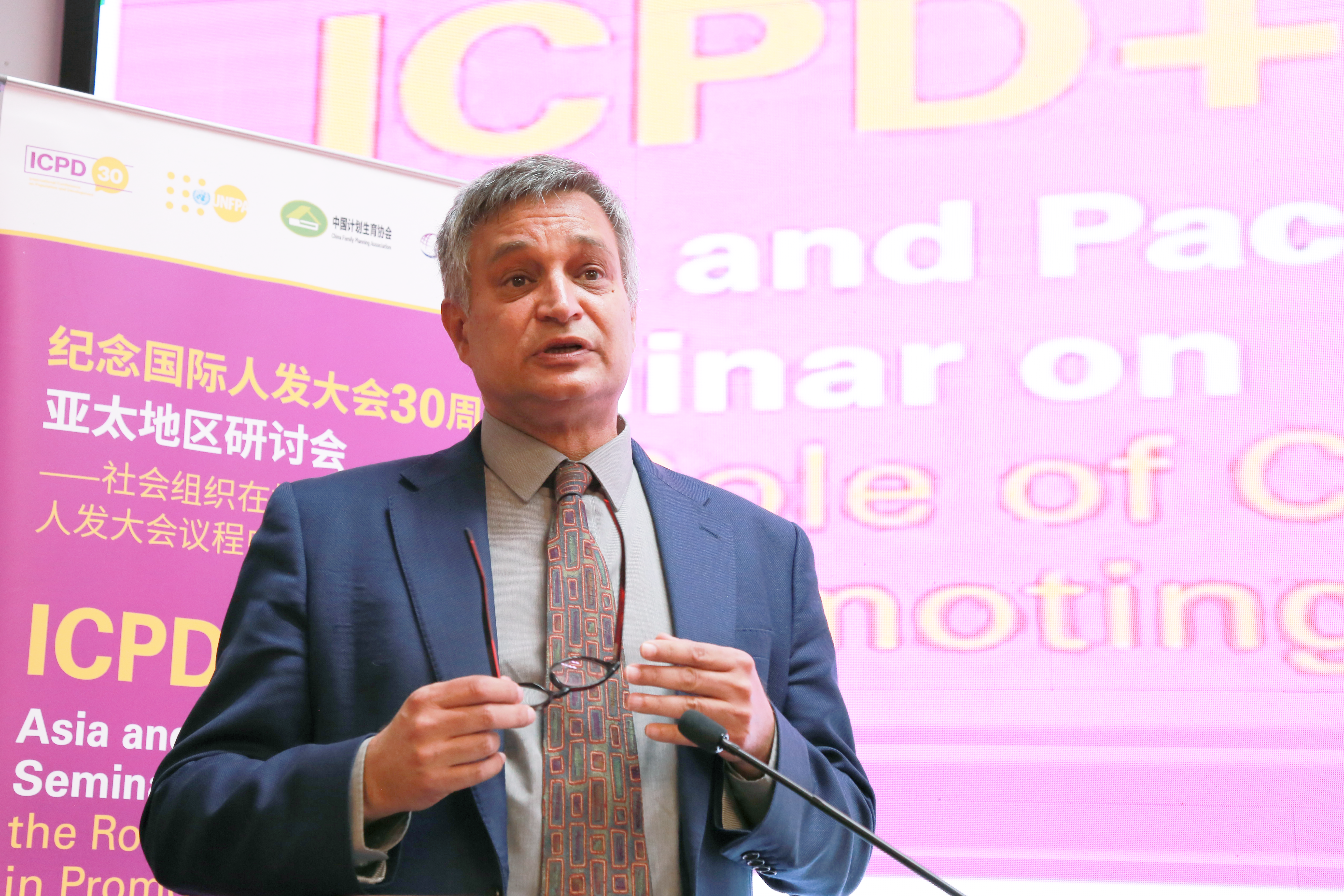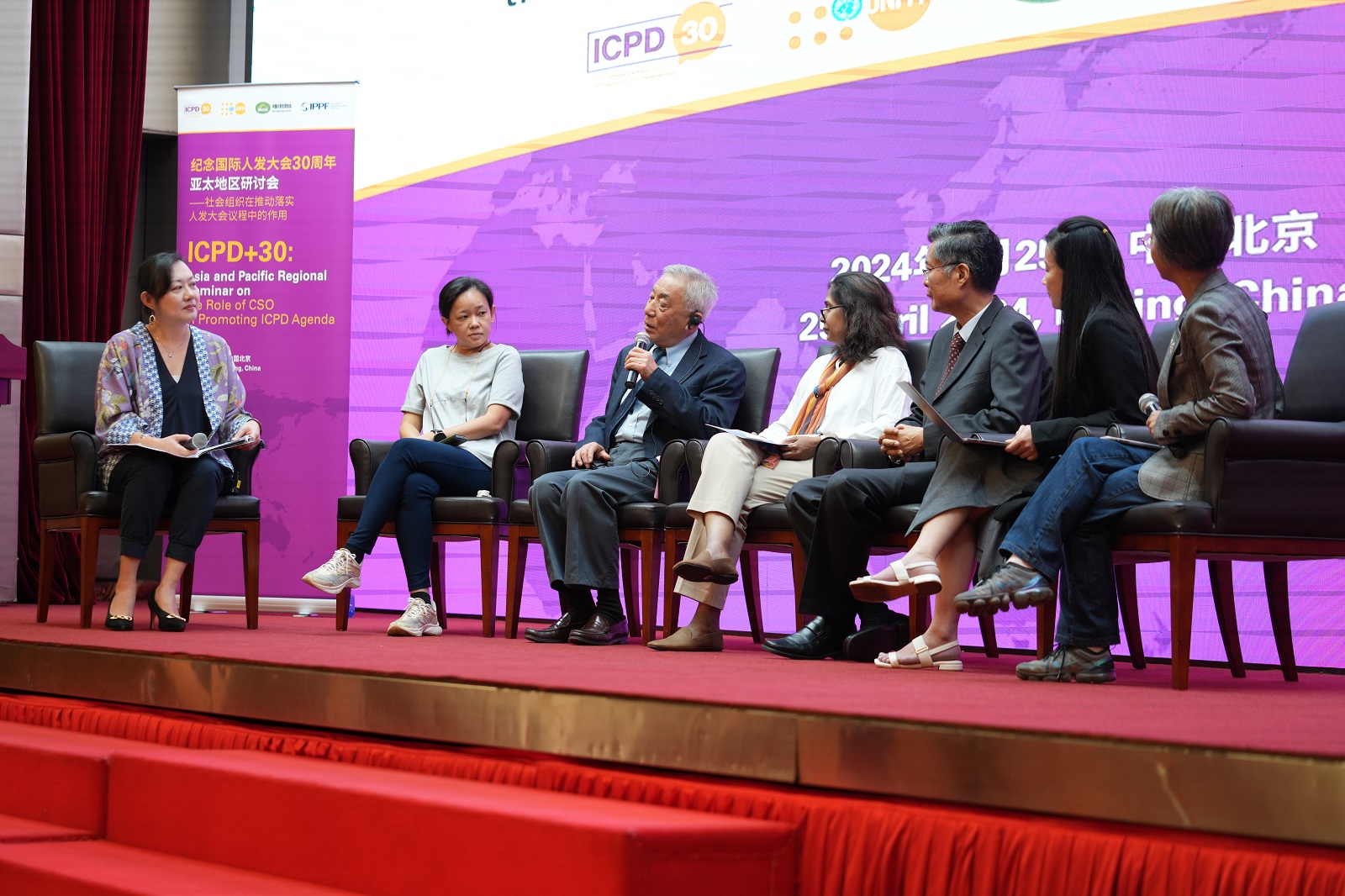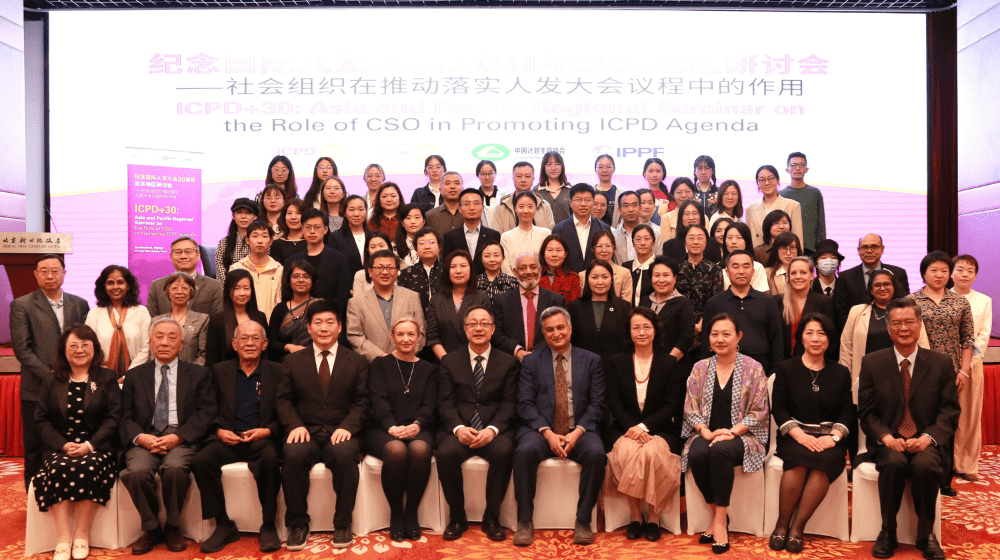On the occasion of the 30th anniversary of the International Conference on Population and Development (ICPD), the United Nations Population Fund (UNFPA) in China, the China Family Planning Association (CFPA), and the International Planned Parenthood Federation (IPPF) co-hosted an Asia and the Pacific regional seminar on the role of civil society organizations in advancing the ICPD agenda in Beijing on 25 April 2024.
Over 100 civil society representatives from 10 countries across Asia-Pacific – Cambodia, Samoa, Sri Lanka, Thailand, Bangladesh, Malaysia, Pakistan, Maldives, Mongolia and China participated in the event and shared their experiences in promoting population and development, sexual and reproductive health and rights, gender equality and women’s empowerment, and youth participation and leadership over the past 30 years.
 At the opening ceremony, Justine Coulson, Representative of UNFPA China stressed that the ICPD marked a historic shift in the global thinking on population and development – a shift from achieving demographic targets to person-centred developmental goals that respect all human rights. She recognised the critical role CSOs continue to play in making the aspirations of the ICPD Programme of Action a reality in people’s lives today and acknowledged that UNFPA relies on the unique expertise of CSOs to deliver information and services to people in need and to advocate for change.
At the opening ceremony, Justine Coulson, Representative of UNFPA China stressed that the ICPD marked a historic shift in the global thinking on population and development – a shift from achieving demographic targets to person-centred developmental goals that respect all human rights. She recognised the critical role CSOs continue to play in making the aspirations of the ICPD Programme of Action a reality in people’s lives today and acknowledged that UNFPA relies on the unique expertise of CSOs to deliver information and services to people in need and to advocate for change.
 Alvaro Bermejo, Director-General of IPPF highlighted that the impact of the pandemic requires increasing global and regional attention to prioritise the ICPD related issues, including sexual and reproductive health, so that no one is left behind. The partnership between CFPA, UNFPA and IPPF has contributed to the success of China in building an enabling environment that promotes participation in decision making, amplifies people’s voices and increases access to sexual and reproductive health information and services.
Alvaro Bermejo, Director-General of IPPF highlighted that the impact of the pandemic requires increasing global and regional attention to prioritise the ICPD related issues, including sexual and reproductive health, so that no one is left behind. The partnership between CFPA, UNFPA and IPPF has contributed to the success of China in building an enabling environment that promotes participation in decision making, amplifies people’s voices and increases access to sexual and reproductive health information and services.
 Yu Xuejun, Vice Minister of the National Health Commission of China and Vice President of CFPA emphasised the great importance that China places on the ICPD agenda. He highlighted that, guided by ICPD, China has made efforts to transform its population policy and has improved health, education and employment opportunities for all with the support from civil society. As the head of the high-level Chinese delegation attending the 57th Session of the United Nations Commission on Population and Development in New York, he reaffirmed the country’s commitment to join hands with other countries in further advancing the ICPD agenda.
Yu Xuejun, Vice Minister of the National Health Commission of China and Vice President of CFPA emphasised the great importance that China places on the ICPD agenda. He highlighted that, guided by ICPD, China has made efforts to transform its population policy and has improved health, education and employment opportunities for all with the support from civil society. As the head of the high-level Chinese delegation attending the 57th Session of the United Nations Commission on Population and Development in New York, he reaffirmed the country’s commitment to join hands with other countries in further advancing the ICPD agenda.
Following the opening ceremony, a range of speakers presented their work on fulfilling the commitments of the ICPD in advancing sexual and reproductive health and rights at national and regional levels, from service delivery, data research to policy development, and with a focus on the specific needs of hard-to-reach communities. They called for strengthened partnership with and support to CSOs to deliver lifesaving work for vulnerable populations.

“Ensuring access to sexual and reproductive healthcare services is not only a matter of health, but also an issue of dignity and resilience,” commented Dr. Ahmed Al Kabir, Chief Advisor and Founder of Research, Training and Management (RTM) International Bangladesh.

With just under six years left to achieve the 2030 Sustainable Development Goals, six panellists shared their views on the ICPD’s contribution to sustainable development, and provided recommendations to keep the ICPD relevant for future decades, including engaging young people in the ICPD conversations, and mobilising resources for the CSOs to continue to play their roles in addressing persistent and emerging population issues in Asia and the Pacific region, particularly rapid population ageing and women’s difficulty in accessing sexual and reproductive health and rights due to cultural sensitivities.


